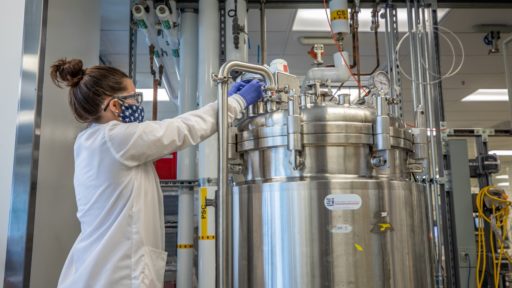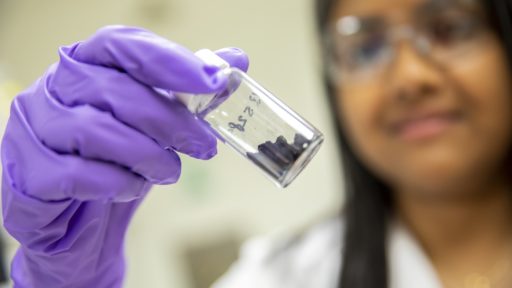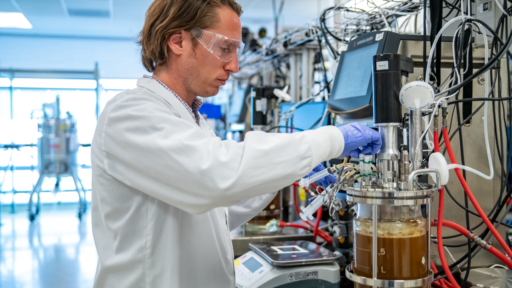Biological Conversion of Gaseous Feedstocks
We leverage advances in fermentation and separations science to accelerate de-risking of emerging bioconversion technologies via process intensification, end-to-end process integration, and pilot-scale demonstration.
C1 biomanufacturing
Single carbon feedstocks – including carbon dioxide, formate, carbon monoxide, and methane – represent a fungible platform for biosynthesis of valuable products from complex organic wastes and electrochemical intermediates.
Process intensification with these emerging feedstocks necessitates a re-imagining of traditional fermentation designs, to maximize gas transfer efficiency or to ensure high-flux transfer of electrical energy to the conversion host.
My research highlights process development implications for these emerging technologies, including the potential for direct coupling of biochemical and electrochemical conversions, and for utilization of performance-advantaged, non-canonical hosts.
Biofuels and bioenergy
The high specificity of metabolic pathways can be leveraged to create an array of fuel molecules, including bio-advantaged molecules featuring improved octane number, reduced emissions, lower freezing points, and higher energy density as compared to petrochemical alternatives. Economic production of these fuels requires a focus on process integration, including feedstock-to-product demonstrations to highlight critical interactions and validate technoeconomic analyses. My research in this area includes production and fuel properties validation of new candidate molecules, assessment of critical production bottlenecks for early stage technologies, demonstration of in situ product recovery – including volatile product recovery technologies, and coordination of integrated demonstrations for biomass to fuel conversion.
Process development and scale-up for biomanufacturing
Moving bioconversion technologies from lab to market requires a holistic approach encompassing host organism considerations, media composition, fermentation conditions, real-time bioreactor controls, feedstock considerations, and implications for downstream processing. In partnership with industry, government, and academic partners, we address process development and demonstration challenges across a wide range of feedstocks and host organisms to accelerate commercialization of new biofuels, biochemicals, biomaterials, and food products. This work often requires onboarding of uncharacterized, non-canonical host organisms and deployment of novel process configurations enabling continuous fermentation, in situ product recovery, and other process intensification strategies.




